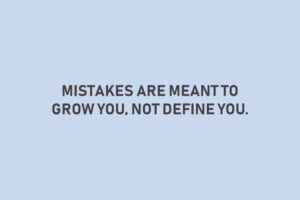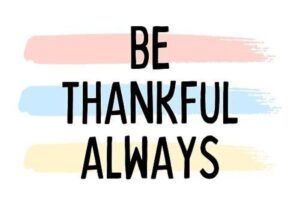15 Ways To Set Small Goals and Achieve Them
When I tell people I started a business with just 10,000 Naira, they often pause and stare at me.
And then comes the silent question their eyes ask, “How?”
Because let’s be honest, how do you take 10,000 out of a 40,000 Naira salary, where school fees, feeding, bills, and life itself are already choking you, and still dare to dream?
But that was my reality.
I wasn’t earning much, and I had every reason not to try, but something inside me refused to settle.
Deep down if I waited for perfect conditions, I’d never start anything.
So I stepped out, scared and unsure, but hopeful, and took that small step of faith, removing 10,000 from my salary, and invested it into a business idea I had been sitting on.
It wasn’t easy because there were months when I doubted myself, when things were slow, and when the responsibilities at home felt heavier than ever.
But I kept going, and I kept learning.
By God’s grace, that little step has grown into something I never imagined. Today, I’m preparing to open my own shop.
That’s why I believe in small goals.
Not just as a concept, but as a lifestyle. Small goals have taught me patience, discipline, and the art of believing in myself even when nothing around me made sense.
So if you’re reading this and you’re feeling stuck, overwhelmed, or unsure of where to start, this post is for you.
Below are 15 deeply practical ways to achieve smaller milestones, even when you don’t have much. These aren’t just tips, they’re truths I’ve lived.
1. Start With a Clear, Meaningful “Why” Behind Your Small Goals

Small goals only stay alive when they have a strong purpose behind them.
Don’t set a goal just because it sounds nice, set it because it moves something inside you.
Whether it’s to build a better future for your children, escape a draining job, or finally walk in your calling, your “why” becomes your fuel.
The stronger it is, the further you’ll go, and when your reason is deeply personal, quitting won’t come so easily.
You’ll push through frustration, exhaustion, and fear not because it’s easy, but because your purpose is too important to let go.
2. Make the Goal So Small It’s Impossible to Ignore

Starting a business? Don’t worry about building an empire just yet.
Ask yourself, “What’s the tiniest version of this dream I can begin with?” Maybe it’s selling one item, offering one service or learning one new thing.
Small doesn’t mean weak, it means focused, and focus creates momentum.
A small start allows you to move without pressure, test the waters, and build confidence with each step.
You don’t need a loud beginning. You just need a committed one.
3.Start With What You Have and Move Forward

This is where many people get stuck.
They wait until they have more money, more support, more knowledge, but what if what you have right now is enough for your first step? I had 10,000. That’s all, and I used it.
Don’t look down on your small seed. In the right soil, it can become a forest.
Sometimes, it’s not the lack of resources, but the presence of doubt and fear.
Learning how to retrain your brain from negative thoughts can shift how you see what is already in your hands.
The truth is, your current resources are often more powerful than you realize.
When you start with what’s in your hands, you learn how to multiply it, stretch it, and make it count.
4. Respect Your Life’s Rhythm While Setting Small Goals

Your goals should fit your pace, not social media’s.
If you can save only 2,000 a month, that’s fine, plan with that.
If you can only dedicate one hour a week to your passion, let that be enough for now.
The point is consistency, not comparison because life happens and responsibilities pull you in different directions.
That’s why your goals should walk with you, not run ahead of you.
Progress that honors your current reality is still progress.
If you’re figuring out how to align that progress with a business idea that truly fits you, this resource on how to find the right business for you might help clarify the path.
5. Write It Down Like a Contract With Yourself

There’s something powerful about putting your goals in writing.
It’s like making a promise you can see.
Stick it on your wall, write it in a journal, save it on your phone so that every time you look at it, it whispers: “This is who you said you’d become.”
Writing it down transforms your goal from an idea to a commitment.
It becomes something you’re accountable to where you’re not just hoping anymore but you’re planning.
6. Focus on One Goal At a Time

Trying to do everything at once is the fastest way to burn out.
Choose one small goal and pour yourself into it.
Whether it’s learning a skill, saving a certain amount, or launching a page, one finished goal brings more results than ten half-started ones.
Sometimes, the clarity to choose that one goal starts with how you begin your day. These steps to the most effective morning routine might be the nudge you need.
When you give your full energy to one thing, you see results faster.
Those results give you the energy and belief to tackle the next. One step at a time wins the race.
7. Celebrate Quiet Wins While Achieving Small Goals

You opened a page? Celebrate.
You made your first 500 Naira? Celebrate.
Every win, no matter how small, is proof that you’re moving because these celebrations remind your heart that progress is happening, even if it’s slow.
The journey is made up of moments that often go unnoticed.
When you acknowledge them, you train your mind to stay encouraged, and you teach yourself to find joy not just in the destination, but in the walk toward it.
8. Track Every Step Like It’s Worth Gold
![]()
Keep a record whether it’s a notebook, a voice note, or a spreadsheet to track your progress.
Seeing where you started and how far you’ve come can be the very thing that keeps you going when motivation runs low.
Tracking shows patterns.
It shows what works and what doesn’t, and most of all, it shows growth even the kind that doesn’t feel visible day to day.
In the midst of the ways the world of work is changing, staying consistent with your personal progress helps you stay grounded and adaptable.
Your small steps add up more than you think.
9. Adjust Without Giving Up on Your Small Goals

Sometimes, you’ll try a method and it won’t work.
That’s not failure, that’s feedback.
Be flexible with your strategies, but stay loyal to your destination.
If Plan A fails, try Plan B, C, or D., but just don’t stop. The key is resilience.
Stubborn goals require flexible approaches so when the road gets blocked, you don’t abandon the journey, you find a new way around it.
Keep your eyes on the vision, and let your route change if it needs to.
And when setbacks start clouding your thinking, this guide on how to retrain your brain to think positively can help you shift your mindset and stay grounded.
10. Visualize the End, Then Build Backward

Close your eyes and imagine the result: your business thriving, your home peaceful, your goals met.
Then ask yourself, what small step can I take today that pulls that future closer? That vision becomes your compass when everything else gets blurry.
When you see the bigger picture clearly, the daily struggles start to make sense.
You’re not just grinding, you’re building something, and each small brick has purpose.
And when doubt creeps in, remembering the reasons why success stories are important can reignite your belief because they remind you that wins are possible, even from humble beginnings.
11. Cut Out Distractions That Sabotage Small Goals

Whether it’s mindless scrolling, negative conversations, or habits that waste your time, let them go.
Small goals need protection.
Your time, energy, and peace are sacred. Guard them like treasure.
Every distraction has a cost. Every unguarded moment steals a bit of your progress.
Protect your environment, protect your focus, and you’ll find that reaching your goals becomes less complicated.
12. Stay Accountable to Someone Who Believes in You

Tell someone you trust.
Let them check in with you, remind you, and encourage you.
Sometimes, a simple “How’s it going?” can keep you from giving up.
You weren’t made to chase your goals in silence.
And in moments when it feels like hope is slipping, this gentle guide on how to give hope to the hopeless is a reminder that even the smallest encouragement can make a big difference.
Accountability adds weight to your commitment so that when someone is watching, it is not to judge but to support you to show up differently.
You push harder, and you keep going, not just for you but because someone else is believing with you.
13. Anchor Your Small Goals in Faith and Purpose

There were days when I didn’t know how the money would come or how I’d handle the pressure. but I leaned on God.
I prayed. I trusted, and He made a way.
Your journey needs more than hustle, it needs hope.
Faith gives you strength when your hands feel empty.
When logic says it’s over, faith says try again.
When fear screams loud, faith whispers peace. Let your trust in God carry the weight your shoulders can’t bear.
This simple reminder of what it means to be hopeful can help you hold on when things feel uncertain.
14. See Mistakes as Training, Not Failure

You’ll make errors. You’ll waste time or miss a deadline.
That doesn’t mean you’re failing. It means you’re learning.
Every mistake has a lesson, and every lesson takes you one step closer to your better self.
Growth isn’t always pretty.
It’s often messy, filled with corrections and restarts, but the one who learns from their missteps becomes wiser, stronger, and more prepared for success that lasts.
15. Let Gratitude Lead You

When you appreciate where you are, you prepare your heart for where you’re going.
Be thankful for the small beginnings.
Be thankful for the strength to keep going.
Gratitude makes room for growth and joy.
It doesn’t erase the hard days, but it shifts how you carry them, and learning how to be hopeful in hard times can deepen that gratitude even more.
A thankful heart stays motivated, so even when results are slow, It finds beauty in the process and welcomes every win with open arms.
Gratitude is not just a feeling, it’s a mindset and it keeps your spirit aligned with purpose.
Closing remarks
If there’s anything my journey has taught me, it’s this: small beginnings are not a sign of weakness, they are evidence of strength, patience, and faith.
Don’t despise your small start. Don’t wait for the perfect time.
For more insight on anchoring your goals to purpose and making them stick, check out these tips for setting and achieving personal goals.
Start where you are, with what you have, and let every small goal lead you toward the life you dream of.
I hope with this, you’ve been able to grab something in the blog post.
Comment below if you’ve ever started small or if you’re about to. Let your story begin, someone out there needs it.